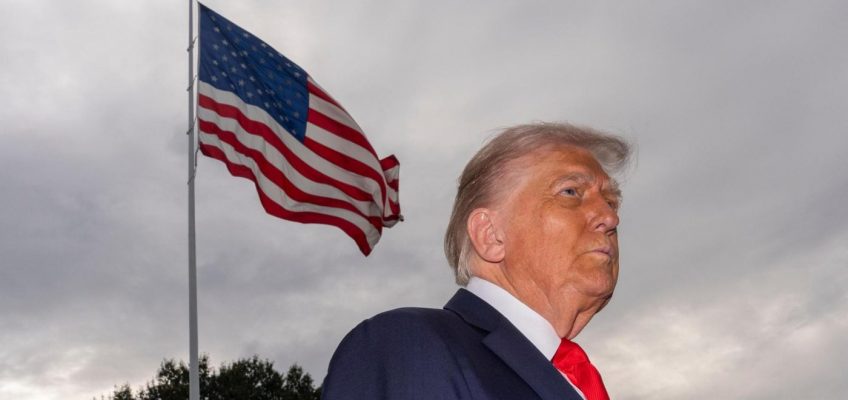President Donald Trump has apparently lost his taste for traditional American capitalism. His policies are creating what Chinese government officials might describe as a “socialist market economy with American characteristics.”
That is not a compliment.
Our country’s economic dynamism is rooted in a few hallowed principles. One is that the free market, meaning supply and demand, not government fiat, should set prices and production levels. We also require a light touch with regulation and taxes. Last, we have an independent central bank that sets interest rates based on objective economic indicators, not political goals. Investors here and abroad trust our Federal Reserve system because its decisions reflect reality.
American capitalism disdains centralized, state-directed economic planning and state-owned enterprises. The government should not try to directly mandate prices, production targets or interest rates. It shouldn’t take an ownership stake in private enterprises except in extreme situations.
Trump has done all those things. Some of his threats are silly, such as his vow to lower prescription drug costs by 1,500%. No one took that seriously. We hope.
More chilling are Trump’s ongoing attempts to drive out Federal Reserve Board Chairman Jerome Powell, whom Trump elevated to that role. So far, Powell and his colleagues have resisted personal attacks and intense pressure to manipulate interest rates. We admire their professionalism and commitment.
In late August, Trump accused Lisa Cook, a member of the Federal Reserve’s board of governors, of mortgage fraud and tried to fire her. She denied the allegation and has sued to keep her post. Trump’s action is an obvious attempt to intimidate Cook. (If he were concerned about public officials and alleged mortgage fraud, surely he would have asked Texas Attorney General Ken Paxton to resign.)
Equally indefensible is Trump’s meddling in individual businesses.
TikTok was the first example. In January, Trump essentially suspended a law, passed with bipartisan support and upheld by the courts, that banned the Chinese-owned app unless it was sold to a U.S. owner. Lawmakers had legitimate concerns that the app posed risks to users’ privacy and to national security.
Trump said he could make a sale happen. He hadn’t, so he kept extending his original executive order, which allows the company to keep operating.
That was just the start of the president’s interference. Trump threatened Apple with additional tariffs on devices made overseas unless it brought more manufacturing to the United States. The U.S. Treasury wants a 15% cut of the revenue Nvidia and AMD earn from selling certain microchips to China that had previously faced export bans. The arrangement may not be legal.
The president urged the CEO of faltering chipmaker Intel to resign and strong-armed it into giving the U.S. a 10% ownership stake. According to news reports, the administration also may invest in major defense contractors.
We’re not convinced that the U.S. government should own more and more of the means of production. That’s more Karl Marx than Ronald Reagan. It’s creeping socialism.
— The Dallas Morning News
Related Articles
US attorney whose office is investigating Letitia James is told he’s being removed, AP source says
Federal judge tosses Trump’s $15B defamation lawsuit against New York Times
Trump’s moves against the media mirror approaches by authoritarian leaders to silence dissent
Trump asks Supreme Court to halt order letting transgender people choose passport sex markers
House passes a bill to avoid a partial government shutdown, but prospects in the Senate look dim


Leave a Reply